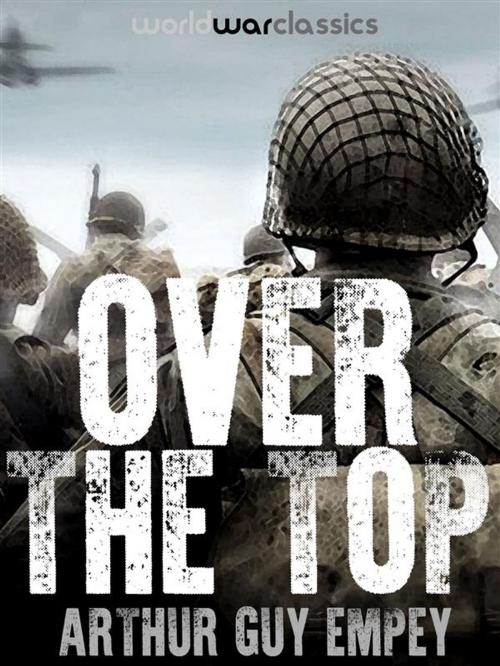| Author: | Arthur Guy Empey | ISBN: | 9788827570487 |
| Publisher: | World War Classics | Publication: | February 14, 2018 |
| Imprint: | Language: | English |
| Author: | Arthur Guy Empey |
| ISBN: | 9788827570487 |
| Publisher: | World War Classics |
| Publication: | February 14, 2018 |
| Imprint: | |
| Language: | English |
Empey served for six years in the US Cavalry and was performing duty as recruiting for the New Jersey National Guard in New York City when World War I began. He left the United States at the end of 1915 frustrated at its neutrality in the conflict at that point and travelled to London, England, where he joined the 1st London Regiment (Royal Fusiliers), Territorial Force, of the British Army, going on to serve with it in the 56th (London) Infantry Division on the Western Front as a bomber and a machine-gunner. He was medically discharged from the British Army after he was wounded in action at the commencement of theBattle of the Somme.
On returning to the United States, Empey wrote a book of his experiences titled Over the Top, which became a publishing sensation in 1917 with over a quarter of a million copies sold, and was turned into a film in 1918 with Empey writing the screenplay and playing the lead role. Empey had attempted to re-join the US Army in 1917 but was rejected due to his wounds. On the basis of the book's success, he played a major propaganda role for the Federal Government's policy of moving the nation from a position of neutrality in World War I to a combatant role, and toured widely throughout the USA giving public performances and readings from it to rally the American people to the nation's entry into the conflict. He was commissioned a Captain in the US Army's Adjutant General's Department but the commission was withdrawn three days later amidst speculation that the cause was that whilst appearing as an actor in a play of Pack Up Your Troubles, Empey gave a speech praising the American volunteers but not the draftees who were being consripted at that time, suggesting that the latter lacked the right stuff because they had waited "until they were fetched" before enlisting for war service. In the audience was President Woodrow Wilson. Empey wrote several more screenplays, and more books on World War I, and formed his own production company called the Guy Empey Pictures Corporation. He was also a popular song-writer during the war years, writing the lyrics for numbers such as Your Lips are No Man's Land but Mine, and Liberty Statue is Looking Right at You.
Empey served for six years in the US Cavalry and was performing duty as recruiting for the New Jersey National Guard in New York City when World War I began. He left the United States at the end of 1915 frustrated at its neutrality in the conflict at that point and travelled to London, England, where he joined the 1st London Regiment (Royal Fusiliers), Territorial Force, of the British Army, going on to serve with it in the 56th (London) Infantry Division on the Western Front as a bomber and a machine-gunner. He was medically discharged from the British Army after he was wounded in action at the commencement of theBattle of the Somme.
On returning to the United States, Empey wrote a book of his experiences titled Over the Top, which became a publishing sensation in 1917 with over a quarter of a million copies sold, and was turned into a film in 1918 with Empey writing the screenplay and playing the lead role. Empey had attempted to re-join the US Army in 1917 but was rejected due to his wounds. On the basis of the book's success, he played a major propaganda role for the Federal Government's policy of moving the nation from a position of neutrality in World War I to a combatant role, and toured widely throughout the USA giving public performances and readings from it to rally the American people to the nation's entry into the conflict. He was commissioned a Captain in the US Army's Adjutant General's Department but the commission was withdrawn three days later amidst speculation that the cause was that whilst appearing as an actor in a play of Pack Up Your Troubles, Empey gave a speech praising the American volunteers but not the draftees who were being consripted at that time, suggesting that the latter lacked the right stuff because they had waited "until they were fetched" before enlisting for war service. In the audience was President Woodrow Wilson. Empey wrote several more screenplays, and more books on World War I, and formed his own production company called the Guy Empey Pictures Corporation. He was also a popular song-writer during the war years, writing the lyrics for numbers such as Your Lips are No Man's Land but Mine, and Liberty Statue is Looking Right at You.















